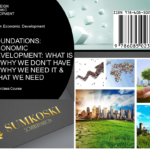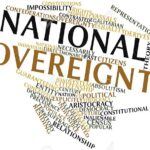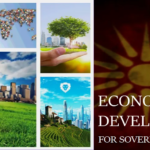

A new vector of immense geopolitical possibilities surged in “post-Covid” West Asia with the visit of UAE Crown Prince Sheikh Mohammed bin Zayed Al Nahyan to Ankara and his meeting with President Recep Tayyip Erdogan on Wednesday.
The crown prince, popularly known as MBZ, was on a visit to Turkey after a gap of nearly a decade characterized by a Time of Troubles in UAE-Turkey relations. The nadir was reached when Turkey alleged an Emirati role in the failed coup attempt in 2016 against Erdogan, which almost certainly had an American hand.
A visceral hostility followed that reached a climax last year when the United Arab Emirates sheltered a colorful Turkish mobster-turned-whistleblower, Sedat Peker, who had earned Erdogan’s wrath and chose to hit back by leaking incriminating information about senior Turkish government figures from his safe haven in the Gulf state.
Such a flurry of activity might suggest that this is yet another desert bloom, a climatic phenomenon accompanied by the proliferation of insects, birds and small species of lizards, that invariably die a sudden death as the rains dry up. But on the contrary, this is more like the super bloom.
What distinguishes a super bloom from the transitory desert bloom is that it is a botanical phenomenon in which an unusually high proportion of flowers whose seeds have lain dormant in desert soil germinate and blossom at roughly the same time.
Foremost among these events is the devastation caused by Covid-19 that triggered historic shifts in not only the global economy but also in international relations. The convulsion is being felt at its most fateful level in the West Asian region, where the petrodollar states are groping a way out of deep recession and witnessing the US retrenchment.
The regional states are called upon to adapt to the grim reality. Thus a common thread binding the various vectors of realignments going on in the region now is that the US is conspicuous by its absence as promoter, instigator or catalyst or even as despoiler in such unprecedented situations ranging from Iran’s steady normalization with Saudi Arabia, the UAE’s with Syria and Iran, or Turkey’s with Saudi Arabia and Egypt.
The US retrenchment is only beginning, but it already has a calming effect on regional politics. A corollary is that the regional states are doing what they can to shield themselves from the turbulence that is bound to flow into West Asia and Africa at some point if and when the US-China rivalries spill over.

During US Secretary of State Antony Blinken’s maiden Africa tour, he had a taste of this when he tried to brainwash leaders with dollops of Sinophobia, but in return heard fulsome praise for China for its constructive engagement with the African economies.
No matter the US focus on the Indo-Pacific region, West Asia remains and will continue to be the crossroads of trade routes fueling the world economy. The countries of the region are intensely conscious of the absence of a regional equilibrium. They have begun to explore the possibilities of a regional consensus to the extent possible to foster peace, stability and economic growth.
This becomes an imperative need as Washington’s containment strategy toward Iran unravels and the options get limited, and no regional country wants to return to a resuscitated US-led regional phalanx of anti-Iranian states.
Meanwhile, the overall trust and confidence in the United States’ capability to lead the petrodollar states has crumbled. Saudi Arabia is ignoring President Joe Biden’s message to pump more oil so Americans can have affordable gasoline to get to and from work or to travel for the Thanksgiving-Christmas holiday period.
The UAE’s policies, from Qatar to Libya, can be seen as primarily defensive – that is, moderation as the key to maintaining regional order and its own security. Of course, this is not to overlook the contradiction that the UAE has shirked political reforms despite its talk of political moderation, or that it is difficult to square the idea of moderation with the brutal civil wars in Libya and Yemen.
That said, the UAE’s rapprochement with Damascus (alongside its détente with Iran) holds interesting possibilities for post-conflict reconstruction in Syria. Equally, the UAE diplomacy at the highest level to initiate constructive dialogue, reduce tension, find common goals and strengthen economic ties with Turkey also opens up seamless possibilities.
Thus MBZ’s visit to Ankara highlighted a strong interest from both countries to promote investment in such sectors as technology, transportation, health, energy and food security.
After the talks, the UAE announced a US$10 billion fund for investments in Turkey “to support the Turkish economy and boost bilateral cooperation between the two countries,” the main focus being on “strategic investments,” especially in sectors including energy, health and food.
Turkey’s economy is in dire straits and for Erdogan it is crucial that the crisis is effectively tackled before he seeks a renewed mandate in the 2023 election. The UAE’s calculus is also driven by economic considerations.
Turkey is a big and lucrative market. With the devaluation of the lira, Turkey is now an excellent place to make investments that will pay off in both the short and long terms. There are rumors that the UAE will purchase a significant amount of Turkish defense products.
The UAE is reportedly interested in mediating between Erdogan and Syrian President Bashar al-Assad. The UAE foreign minister, Sheikh Abdullah bin Zayed, met with Assad in Damascus on November 9.
Neither Erdogan nor MBZ made any statements after their talks. But the fact that they met and are planning to meet again shortly signals a shared conviction that past animosities can and must be laid to rest.

Certainly, there is a big picture here. The tenuous network of Gulf alliances anchored on robust, unwavering US support has come undone; UAE-Saudi equations are in a state of flux; the overall weakening of popular Arab movements has eased the UAE’s threat perception regarding Turkish foreign policies.
On the other hand, for Turkey, its isolation in the Eastern Mediterranean and growing friction in relations with Russia make it necessary to improve relations with regional states.
Even as Turkey’s normalization with Saudi Arabia and Egypt is taking time to fructify, UAE has seized the opportunity to reach out to Turkey and normalize relations relatively quickly.
This article was produced in partnership by Indian Punchline and Globetrotter, which provided it to Asia Times.
M K Bhadrakumar is a former Indian diplomat.



























